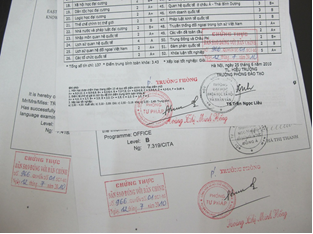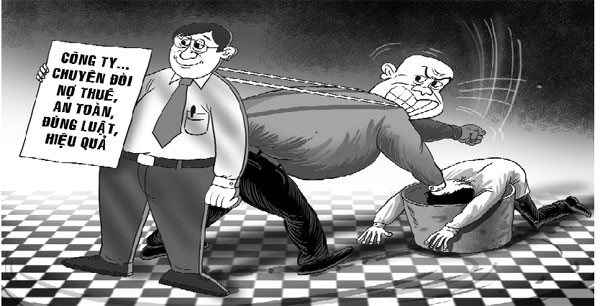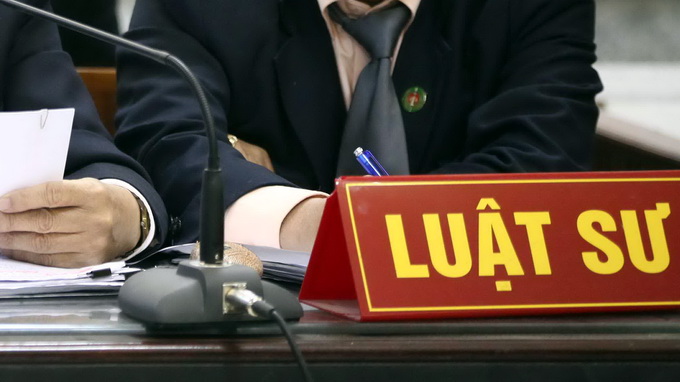For convenience in searching for legal regulations and simplifying the search for legal normative documents related to sanctioning violations in the field of taxation, the Ministry of Finance has consolidated the regulations on administrative penalty sanctions (APS) into a consolidated document 16/VBHN-BTC.
Consolidated Document 16/VBHN-BTC is consolidated from the following 02 Decrees:
- Decree 129/2013/ND-CP dated October 16, 2013, of the Government of Vietnam stipulating the sanction of administrative violations on tax and enforcement of administrative tax decisions, effective from December 15, 2013;- Decree 100/2016/ND-CP dated July 01, 2016, of the Government of Vietnam detailing and guiding the implementation of a number of articles of the Law amending and supplementing a number of articles of the Law on Value-Added Tax, Special Consumption Tax Law, and Tax Administration Law, effective from July 01, 2016.
Consolidated Document 16 stipulates the sanction of administrative violations on tax and enforcement of administrative tax decisions. In which, administrative violations on tax are violations of the provisions of the Law on Tax Administration pertaining to: various types of taxes; land rent, water surface rent; land levy; revenue from mineral resource extraction and other revenue managed by the tax authority as per legal regulations; not applicable to administrative violations concerning fees, charges, invoices, and tax-related administrative violations on export and import goods.

Consolidated Document 16 has compiled general and specific regulations detailing the penalties for each violation. Some notable points are as follows:
Regarding statute of limitations and deadlines for administrative tax violations:
- For tax procedure violations, the statute of limitations is 02 years from the date the violation is committed to the date the sanction decision is issued;- For tax evasion or fraud not subject to criminal prosecution, incorrect declarations leading to a deficit in the payable tax amount or an increase in the refunded tax amount, the statute of limitations is 05 years from the date the violation is committed to the date the sanction decision is issued;
The time to determine the violation in this case is the day after the last date of the tax filing deadline for the tax period in which the taxpayer commits the under-declaration, tax evasion, or tax fraud, or the day after the authority issues a tax refund, tax exemption, or tax reduction decision.
Individuals who have been prosecuted, indicted, or brought to trial under criminal procedures and later have the investigation or case suspended, if their violation has signs of administrative tax violations, the investigation or case-suspending authority must send the suspension decision and the case file to the competent authority for administrative sanction within 03 days from the date the suspension decision is issued. The statute of limitations for sanctions shall follow the stated regulations.
In cases where the statute of limitations for administrative sanctions has expired, taxpayers will not be sanctioned but must still pay the full amount of tax deficit, tax evasion, tax fraud, and late payment into the state budget within the past 10 years from the date the violation is discovered. If the taxpayer has no taxpayer registration, they must pay the full tax deficit, tax evasion, tax fraud, and late payment tax for the entire period from the date the violation is discovered.
Regarding forms of administrative tax violation sanctions:
There are 02 forms of administrative tax sanctions:
- Warning: This form is applicable to minor tax procedure violations with mitigating circumstances and as per regulations prescribing a warning sanction.- Fines:- For tax procedure violations:- The maximum fine is not more than 200 million VND for organizations, and for individuals (households), it is 1/2 of the fine for organizations as per the Law on Handling of Administrative Violations.- The specific fine for each tax procedure violation is the average level of the fine frame prescribed for that violation. Each aggravating or mitigating circumstance shall increase or decrease 20% of the average fine level of the fine frame.- When determining the fine level for violations with both aggravating and mitigating circumstances, the principle of reducing one aggravating circumstance with one mitigating circumstance shall be applied. After applying this principle, if there are remaining mitigating circumstances, the fine may be reduced but not below the minimum fine frame, and if there are remaining aggravating circumstances, the fine may increase but not exceed the maximum fine frame.- For incorrect declarations leading to a deficit in payable tax or an increase in refundable tax: A fine of 20% of the tax deficit or the increased refundable tax for incorrect declarations leading to a deficit in payable tax or an increase in refundable tax, applicable to both organizations and individuals;- For tax evasion and fraud: A fine of 1 to 3 times the evaded or fraudulent tax amount. The fine for individuals is 1/2 of the fine for organizations.
Cases not subject to administrative tax violation sanctions:
The following 6 cases are not subject to administrative tax violation sanctions:
- Committing administrative violations in a state of emergency;
- Committing administrative violations in legitimate self-defense;
- Committing administrative violations due to unexpected events;
- Committing administrative violations due to force majeure events;
- The violator is not liable for administrative responsibility; the violator is under the legal age for administrative sanctions;
- Incorrect declarations where the taxpayer has subsequently filed supplemental tax declarations and paid all due taxes before the tax authority announces the tax inspection or audit decision at the taxpayer's premises.
Authority over administrative tax violation sanctions:
- For tax authorities: Tax officials and organizations have the authority to warn and fine for tax procedure violations. Specifically:- Tax officials performing duties may impose fines up to 1 million VND;- The head of the Tax Team, within their functions and duties, may impose fines up to 5 million VND;- The head of the District Tax Department, within their jurisdiction, may impose fines up to 50 million VND; fines for incorrect declarations leading to a deficit in payable tax or an increase in refundable tax, tax evasion and fraud, and administrative sanctions against financial institutions;- The head of the Provincial Tax Department, within their jurisdiction, may impose fines up to 140 million VND; fines for incorrect declarations leading to a deficit in payable tax or an increase in refundable tax, tax evasion and fraud, and administrative sanctions against financial institutions;- The General Director of the General Department of Taxation may impose fines up to 200 million VND; fines for incorrect declarations leading to a deficit in payable tax or an increase in refundable tax, tax evasion, and fraud, and administrative tax violation sanctions against relevant organizations and individuals.- For the Chairman of the People's Committees at various levels: The authority of the Chairman in administrative tax sanction is implemented according to the law on handling administrative violations.
Cases for exemption and reduction of administrative tax violation fines:
Individuals sanctioned for administrative tax violations have the right to propose exemption or reduction of fines of 3 million VND or more if they face sudden and special economic difficulties due to natural disasters, fire, disasters, accidents, epidemics, or critical illnesses.
The maximum exemption and reduction shall equal the remaining fine amount in the sanction decision and not exceed the value of damaged assets, goods, or medical treatment costs.
No exemption or reduction of administrative tax fines shall apply to cases where administrative tax sanctions have been implemented or the time limit for complaint resolution has passed as prescribed by law.
 Article table of contents
Article table of contents





.Medium.png)
.Medium.png)
.Medium.png)
.Medium.png)
